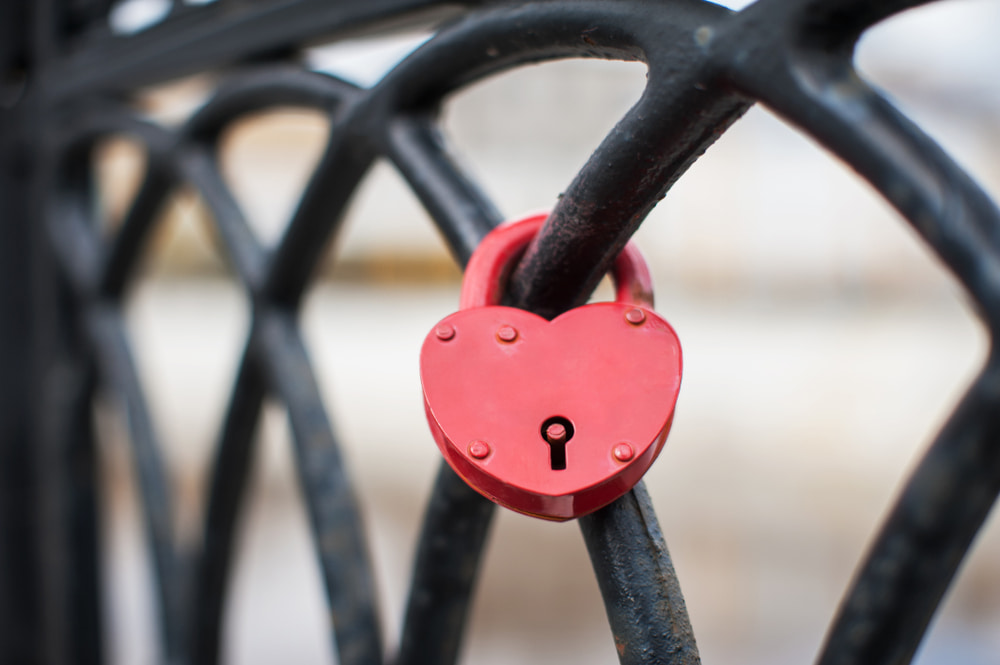It’s normal for all of us to want to feel love, support, and empathy. You want a partner who will pay attention to you, actively listen, and be there to support you through difficult times.
However, what happens when finding a partner becomes your sole preoccupation? What if you or your partner discover that you have an addictive personality when you’re in a relationship? On the surface, feeling strongly attached to your partner may not sound like a big deal.
Yet, not everyone knows what love addiction actually is. In fact, at PIVOT, we use a more accurate term. We call it attachment dysregulation. And to overcome is to learn first – what is actually attachment dysregulation and how does it manifest itself?

What Is Attachment Dysregulation?
Attachment dysregulation, as it relates to the term love addiction, refers to the feelings of euphoria and other intense emotions while either in a relationship or in pursuit of a relationship. Feeling longing when your partner’s not around or indulging their desires reflects the usual dedicated behavior in a relationship.
However, the main distinction between attachment dysregulation and regular, loving, and dedicated relationships is the innermost desire and need of one partner to be in a relationship. Only then can they feel completely and truly happy and satisfied with their lives.
Some of the main characteristics of relationship and love addicts include:
- Their psychological inability to be alone, i.e. without a partner by their side.
- An unrelenting desire to start a relationship with another person.
- Becoming overbearing toward your partner for fear of the relationship ending.
- Inability to leave a toxic relationship due to fear of ending up alone and without that special someone.
Attachment dysregulation affects the brain in similar ways as other addictions do. It makes it difficult to think about things other than your current or potential partner. You may be compelled to seek your thrill out even if it means suffering negative consequences, You may even be unable to function at your maximum capacity due to your mind being preoccupied with a feeling you identify as love.

What Are The Signs Of Love Addiction?
The beginnings of attachment dysregulation often mimic some usual relationship patterns. Infatuation, sense of closeness, the need for frequent physical contact and sex, as well as emotional rollercoasters can describe many relationships. However, there are certain defining characteristics that, when combined, can signal attachment dysregulation. These include:
- Repeated make-ups and break-ups with one or more partners
- Attempts at using sex to fix problems in a relationship
- Absence of personal life outside of a relationship
- Formation of identity around your relationship
- Justifying abusive and toxic patterns to remain with a partner
- Inability to willfully exit a relationship
- Committing very quickly
- Becoming dependent on your partner and overlooking their flaws and toxic traits
- Feeling of exhaustion after frequent lows and highs in your relationship without an incentive to leave
- Obsessive behavior in a relationship
- Experiencing negative emotions like lack of love and desire from your partner
- Absence of time dedicated to yourself or your friends and family
- Attempts at changing your own personality, habits, and behaviors for the sake of remaining in a relationship
- Feeling tired, irritable, insecure, confused, anxious, or depressed
What Causes Relationship Addiction?
While it may be difficult to claim what causes attachment dysregulation with a great degree of certainty, there’s a lot that points to a lack of love and support in your young life, as well as potential early-childhood abandonment.
At its most fundamental, attachment dysregulation is an attempt to fill a void in your adult life left by the scars of your childhood and past trauma. Often, negative relationship patterns in your early childhood are usually the main cause behind later-life attachment dysregulation.
Over time, this becomes your survival pattern due to untreated wounds from your childhood. Individuals susceptible to attachment dysregulation usually live through some upsetting events at a young age, such as:
- The divorce of your parents
- One or both parents are addicts and/or mentally ill
- Discovery that you were adopted
- Losing a parent or a sibling at an early age
- Suffering abuse during your early childhood
- Emotionally unavailable parents
- Abandonment and neglect
- Absence of parental validation
Whatever the reason, the result is an unhealthy and disconnected relationship that does you more harm than good, but that you’re also unable to leave.

How Do You Overcome A Love Addiction?
The first and the most important thing is that if someone tells you that you are a love addict, dump that label. What you are experiencing is attachment dysregulation, and, it doesn’t mean that change isn’t possible. It’s a signal to dig deeper, work harder, and understand you are deserving and capable of secure attachments. You would benefit from help from a certified relationship coach to gain an understanding of yourself and begin to engage in a process that is designed for YOU.
It’s important to listen to yourself and notice your thoughts and feelings. Once you recognize your craving and desire for relationship is getting in the way of your choosing what is healthy for you, make a decision to do all you can to stop engaging in addictive patterns and break the vicious cycle. You can get help learning how to stay far away from known triggers. Avoiding love-oriented content, social media, dating apps, etc. for a period of time can help you begin to dissipate the anxiety caused from your unmet longing.
You can find solace, empathy, and support from your trusted friends and family. Focus on yourself for as long as it’s necessary until you start seeing first fruits of your labor. And remember to take it slow and be gentle with yourself – you deserve it.
PIVOT Supports You In Overcoming Your Love Addiction In Your Relationship
Relationship problems come in all shapes and forms, from not receiving enough empathy and attention from your loved one to struggling to rekindle your passion. Attachment dysregulation is also one of the frequent issues. Experiencing it can be very difficult for both you and your partner. It can lead to long-term relationship issues that could be difficult to resolve.
However, know that it’s not the end of the road for your relationship and that it’s entirely possible to overcome your addictive behavior. While not easy, as few matters of the heart and mind are, it’s certainly achievable. It’s similar to finding love again after your breakup. It seems impossible, yet it isn’t, especially with guidance from experienced and empathetic advocates. PIVOT is here to help you find balance in your life and relationship again. Our team of caring advocates will help you understand the reasons behind your addiction and be there as you’re overcoming it. Our couple retreat could do the trick for you and your partner, or or you’d rather attend individual workshops for working on your problems. Call us today and let’s overcome your issues together.